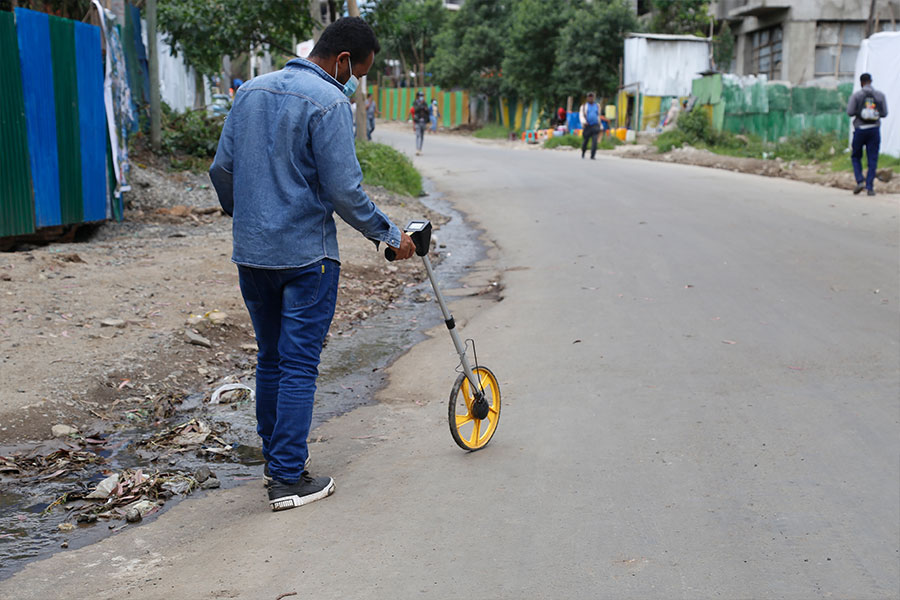
Agenda | May 23,2021
Dec 19 , 2021
By Eden Sahle
While many personality traits bother people, one that elicits a strong emotional reaction from many are references such as issuwa(her) or issufrom those closest to them.
These general representations not only lack affection and charm but we also use them when we are angry, disappointed or blaming someone. I am guilty of shifting from referring to people by their names to say issuwaor issuwhen I am mad at someone. We sometimes forget that identifying people by their names is a form of respect.
I have heard these references from spouses, friends, colleagues, and strangers during expressions of irritation or anger. For those in a romantic relationship, it always starts with affectionate references until they get married and start to refer to their spouse as issuwaand issu. People who are proud to shower their significant other with several romantic names no longer make an effort.
Such a cooling-off recently caused a big fight among relatives who live in California. After two years of visa processing, the woman joined her husband from Addis Abeba recently. It did not take them long to have a major fight that involved their families in Ethiopia. The cause of the disagreement is that her husband tends to address her differently when he is around with his friends and colleagues.
Her husband calls her anchi(you) and issuwawhen they are with others company and uses affectionate references when they are alone. This angered his wife. Thankfully the couple mended the relationship soon after as the husband apologised and promised to refer to his wife in the same loving way in front of others as he is doing when they are alone.
How we refer to someone influences how others perceive our attitudes towards a person. Whether we like it or not, perception holds so much meaning. What is often forgotten is that issuwaand issureferences degrade the person's value and reflect how we see them. Referring someone by their name establishes a tone of respect and affection.
I recently observed two of my newlywed friends shifting to non-affectionate designations, although they are not fighting about it like my relatives, perhaps because both are doing it. The loving and caring references have quickly vanished, especially in front of others. It did make me compelled to ask them individually what drove the change.
The husband said it was unintentional. But the woman justified her shift that her friends mock her as the one who loves the spouse the most and referring to him as issu has made her friends consider her spouse as the one who loves her the most. She is now considered in control of her emotions because she withdrew from her affectionate references to her husband.
The contrast between the two ways of referencing loved ones seems like a minor thing. Still, it reflects the lack of seriousness and dedication to appreciate one’s spouse or loved one in front of others, not just when they are alone. Such dynamics of a family also affects children as parents set examples. As a natural phenomenon, children hear their parents addressing their spouses in a certain way and, in turn, they start referring to the parents in the same impolite way.
Being addressed condescendingly by strangers might be tolerable, but not from a loved one. Of course, we can easily debate whether issuwa or issu references are not hurtful and undermining, but those who do it realise it is not nice when confronted by it. Most importantly, they do not like to be addressed as such.
The uniformity of a consistent behaviour reflects reliability and predictability. Romantic relationships involve the expectation of lasting affection, acceptance, validation, empathy, and reciprocal attitude. As they say, couples will grow to be similar over the years; hence it is for their benefit to nurture and uphold good characters that they both can harvest joy from.
PUBLISHED ON
Dec 19,2021 [ VOL
22 , NO
1129]

Agenda | May 23,2021

Films Review | Mar 14,2020

Fortune News | Dec 19,2021

Agenda | Oct 16,2021

Radar | Oct 09,2021

Exclusive Interviews | Feb 12,2022

Films Review | Sep 26,2021

Radar | Nov 28,2021

Exclusive Interviews | Jan 05,2020

Fortune News | Jul 18,2021

My Opinion | 131970 Views | Aug 14,2021

My Opinion | 128359 Views | Aug 21,2021

My Opinion | 126297 Views | Sep 10,2021

My Opinion | 123913 Views | Aug 07,2021

Dec 22 , 2024 . By TIZITA SHEWAFERAW
Charged with transforming colossal state-owned enterprises into modern and competitiv...

Aug 18 , 2024 . By AKSAH ITALO
Although predictable Yonas Zerihun's job in the ride-hailing service is not immune to...

Jul 28 , 2024 . By TIZITA SHEWAFERAW
Unhabitual, perhaps too many, Samuel Gebreyohannes, 38, used to occasionally enjoy a couple of beers at breakfast. However, he recently swit...

Jul 13 , 2024 . By AKSAH ITALO
Investors who rely on tractors, trucks, and field vehicles for commuting, transporting commodities, and f...

Jul 5 , 2025
Six years ago, Ethiopia was the darling of international liberal commentators. A year...

Jun 28 , 2025
Meseret Damtie, the assertive auditor general, has never been shy about naming names...

Jun 21 , 2025
A well-worn adage says, “Budget is not destiny, but it is direction.” Examining t...

Jun 14 , 2025
Yet again, the Horn of Africa is bracing for trouble. A region already frayed by wars...

Jul 6 , 2025 . By BEZAWIT HULUAGER
The federal legislature gave Prime Minister Abiy Ahmed (PhD) what he wanted: a 1.9 tr...

Jul 6 , 2025 . By YITBAREK GETACHEW
In a city rising skyward at breakneck speed, a reckoning has arrived. Authorities in...

Jul 6 , 2025 . By NAHOM AYELE
A landmark directive from the Ministry of Finance signals a paradigm shift in the cou...

Jul 6 , 2025 . By NAHOM AYELE
Awash Bank has announced plans to establish a dedicated investment banking subsidiary...